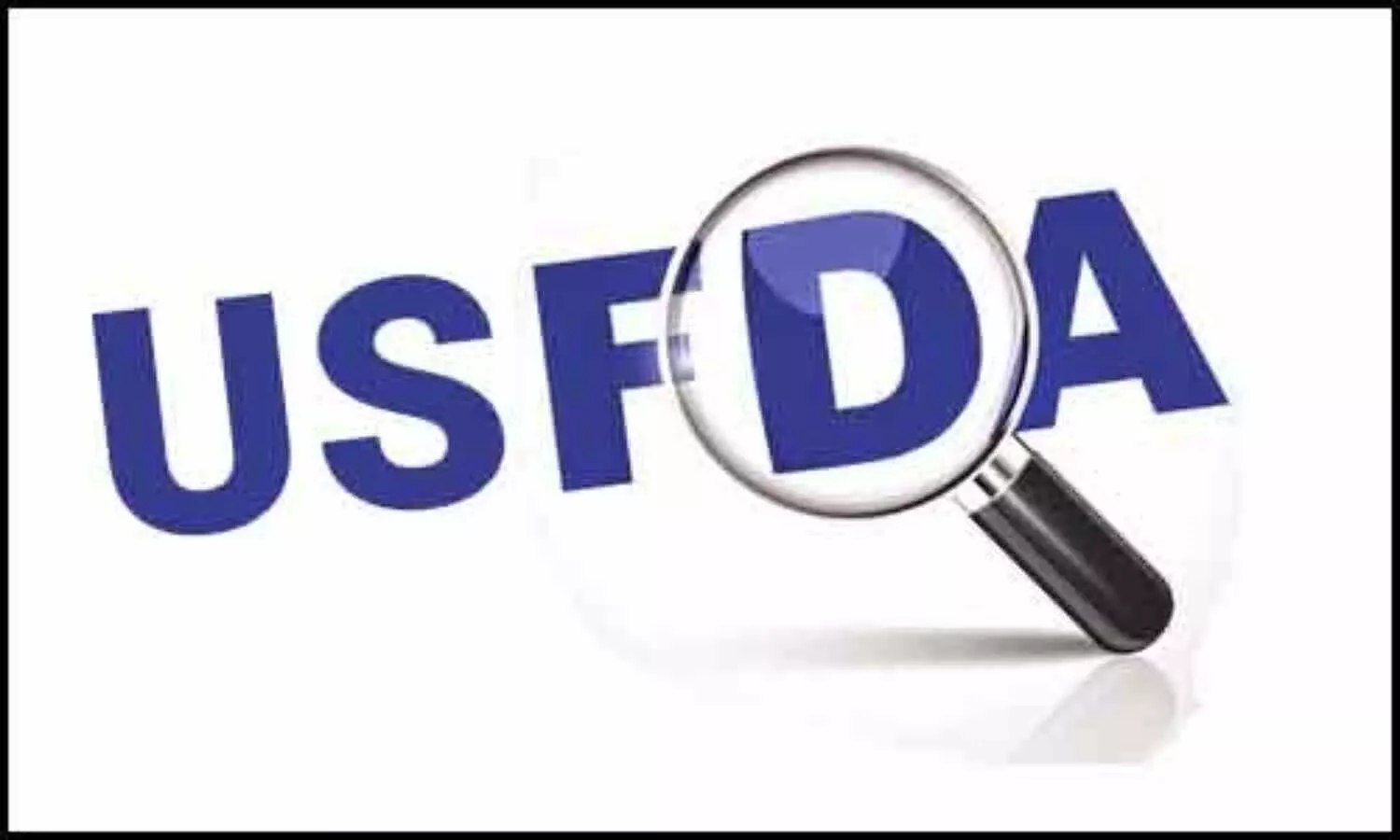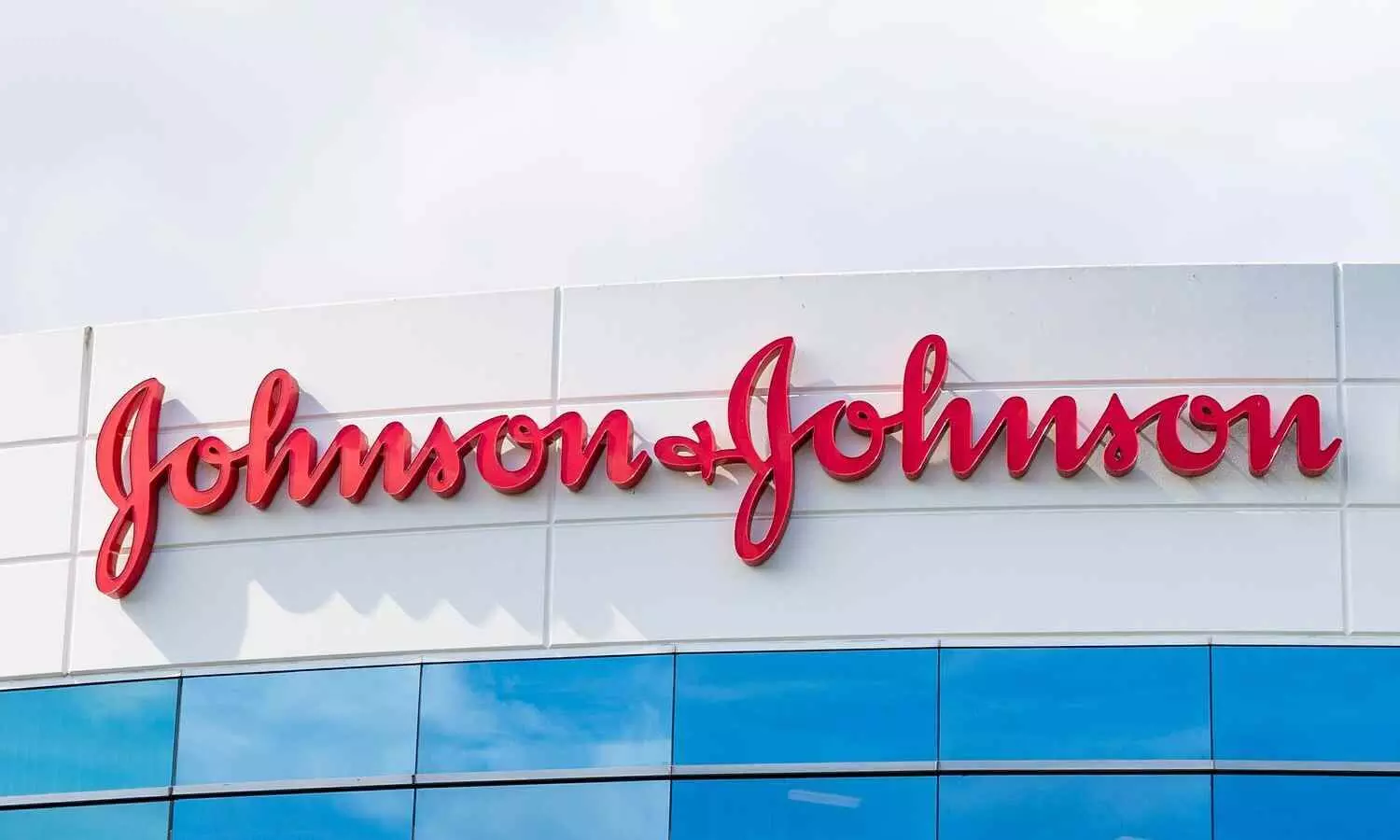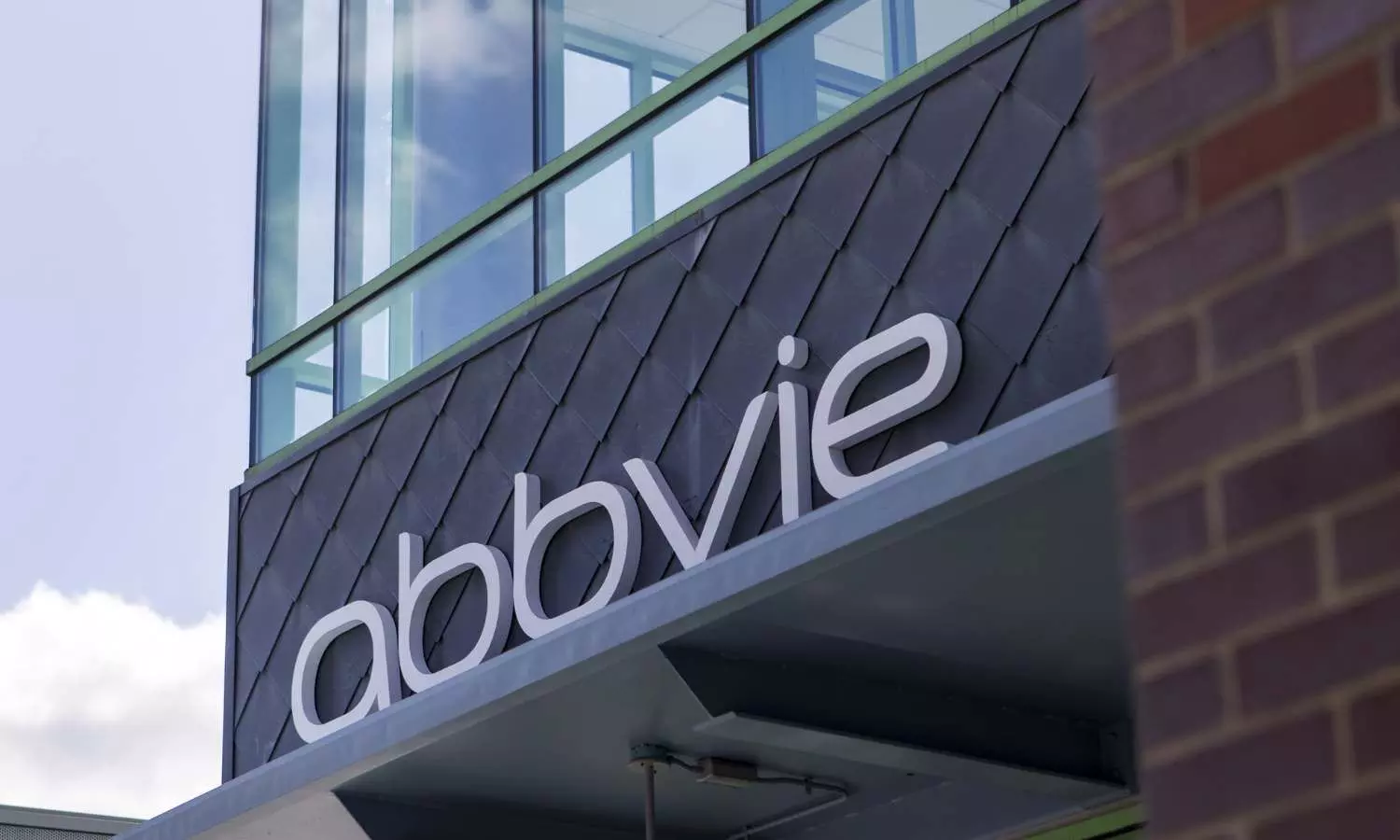Medical News, Health News Latest, Medical News Today - Medical Dialogues |
AbbVie Eyes USD 1 Billion Buyout of Mental Health Drugmaker Gilgamesh
Bengaluru: Drugmaker AbbVie is in talks to acquire privately-held mental health therapeutics company Gilgamesh Pharmaceuticals in a deal worth about USD 1 billion, Bloomberg News reported on Wednesday, citing people familar with matter.
The U.S. drugmaker has spent over $20 billion on acquisitions since 2023 as its flagship rheumatoid arthritis treatment, Humira, lost patent protection.
Gilgamesh is a clinical-stage company developing therapies for psychiatric disorders, including depression, anxiety and post-traumatic stress disorder.
In May, AbbVie said it is partnering with Gilgamesh to develop therapies for psychiatric disorders, under which Gilgamesh could receive up to $1.95 billion in option fees and milestone payments.
Deliberations over the acquisition are ongoing and could be delayed or fall apart, Bloomberg News reported.
AbbVie and Gilgamesh did not immediately respond to Reuters' requests for comment.
1 day 17 hours ago
News,Industry,Pharma News,Latest Industry News
Medical News, Health News Latest, Medical News Today - Medical Dialogues |
AbbVie seeks USFDA nod for combination regimen of Venclexta, Acalabrutinib for previously untreated patients with Chronic Lymphocytic Leukemia
North Chicago: AbbVie has announced the submission of a supplemental New Drug Application (sNDA) to the U.S.
North Chicago: AbbVie has announced the submission of a supplemental New Drug Application (sNDA) to the U.S. Food and Drug Administration (FDA) for the fixed-duration, all-oral combination regimen of VENCLEXTA (venetoclax) and acalabrutinib in previously untreated patients with Chronic Lymphocytic Leukemia (CLL), offering CLL patients another VENCLEXTA combination regimen with the potential for time-limited treatment.
The submission is based on the positive results from the Phase 3 AMPLIFY trial. The combination regimen of VENCLEXTA and acalabrutinib improved progression-free survival (PFS) compared to standard chemoimmunotherapy in previously untreated patients with CLL.
"This FDA submission marks a milestone for CLL treatment with the potential approval for the first oral combination regimen of VENCLEXTA and acalabrutinib for previously untreated patients with chronic blood cancer. This new fixed-treatment duration approach could allow patients the opportunity for time off treatment, if approved, and be potentially practice-changing in frontline CLL care," said Svetlana Kobina, vice president, global medical affairs, oncology, AbbVie.
AMPLIFY is an AstraZeneca-sponsored, global, multi-center Phase 3 trial evaluating VENCLEXTA plus acalabrutinib alone or combined with obinutuzumab versus chemoimmunotherapy in patients with previously untreated CLL without del(17p) or TP53 mutation.
Data presented at the 2024 American Society of Hematology Annual Meeting showed that the fixed-duration combination regimen of VENCLEXTA and acalabrutinib reduced the risk of disease progression or death by 35% vs chemoimmunotherapy (HR 0.65; 95% CI: 0.49-0.87; p=0.004). The safety profile of the VENCLEXTA and acalabrutinib combination regimen is consistent with the known safety profile of each individual therapy alone.
VENCLEXTA (venetoclax) is a first-in-class medicine that selectively binds and inhibits the B-cell lymphoma-2 (BCL-2) protein. In some blood cancers, BCL-2 prevents cancer cells from undergoing their natural death or self-destruction process, called apoptosis. VENCLEXTA targets the BCL-2 protein and works to help restore the process of apoptosis.
VENCLEXTA is being developed by AbbVie and Roche. It is jointly commercialized by AbbVie and Genentech, a member of the Roche Group, in the U.S. and by AbbVie outside of the U.S. Venetoclax is approved in more than 80 countries, including the U.S.
2 days 16 hours ago
News,Industry,Pharma News,Latest Industry News
Medical News, Health News Latest, Medical News Today - Medical Dialogues |
Ichnos Glenmark Innovation, AbbVie ink pact for investigational cancer drug
New York: AbbVie and IGI Therapeutics SA, a wholly owned subsidiary of New York-based Ichnos Glenmark Innovation, Inc. (IGI), have announced an exclusive licensing agreement for IGI's lead investigational asset, ISB 2001, developed using IGI's proprietary BEAT protein platform, for oncology and autoimmune diseases.
New York: AbbVie and IGI Therapeutics SA, a wholly owned subsidiary of New York-based Ichnos Glenmark Innovation, Inc. (IGI), have announced an exclusive licensing agreement for IGI's lead investigational asset, ISB 2001, developed using IGI's proprietary BEAT protein platform, for oncology and autoimmune diseases.
"Multispecifics including trispecific antibodies represent a new frontier in immuno-oncology with the potential to deliver deeper, more durable responses by engaging multiple targets simultaneously," said Roopal Thakkar, M.D., executive vice president, research and development and chief scientific officer, AbbVie. "This partnership with IGI reflects our unwavering commitment to advancing novel therapies for patients with multiple myeloma, a disease where significant unmet need remains despite recent progress."
"ISB 2001 exemplifies the potential of our BEAT protein platform to generate effective multispecifics that may overcome resistance and improve outcomes in hard-to-treat cancers," said Cyril Konto, M.D., President and CEO of IGI. "This agreement marks a defining milestone in IGI's scientific journey and reflects our team's deep commitment to delivering meaningful therapies for patients. Our partnership with AbbVie accelerates ISB 2001's path to patients and sharpens our focus on advancing the next generation of BEAT-enabled assets in oncology."
Under the terms of the agreement, AbbVie will receive exclusive rights to develop, manufacture, and commercialize ISB 2001 across North America, Europe, Japan and Greater China. Subject to regulatory clearance, IGI will receive an upfront payment of $700 million and is eligible to receive up to $1.225 billion in development, regulatory, and commercial milestone payments, along with tiered, double-digit royalties on net sales.
ISB 2001 is a trispecific T-cell engager that targets BCMA and CD38 on myeloma cells and CD3 on T cells currently in Phase 1 for relapsed/refractory multiple myeloma. Developed using IGI's proprietary BEAT protein platform, ISB 2001 was engineered with two distinct binders against myeloma-associated antigens to enhance avidity, even at low target expression levels, while aiming to improve safety over first-generation bispecific antibodies. Recently presented at the 2025 American Society of Clinical Oncology (ASCO) Annual Meeting as a Rapid Oral Presentation (Abstract #7514), data from 35 patients demonstrated a sustained overall response rate (ORR) of 79% and a high complete/stringent complete response (CR/sCR) rate of 30% at active doses ≥ 50 µg/kg in a heavily pretreated population of relapsed/refractory myeloma patients, with a favorable safety profile.
U.S. Food & Drug Administration granted ISB 2001 Orphan Drug Designation in July 2023 and Fast Track Designation for the treatment of relapsed/refractory myeloma patients in May 2025.
3 weeks 12 hours ago
News,Industry,Pharma News,Latest Industry News
Medical News, Health News Latest, Medical News Today - Medical Dialogues |
Imbruvica gets positive EMA Committee opinion for untreated mantle cell lymphoma eligible for Stem Cell Transplant: Janssen-Cilag International
Beerse: Janssen-Cilag International NV, a Johnson & Johnson company, has announced that the Committee for Medicinal Products for Human Use (CHMP) of the European Medicines Agency (EMA) has issued a positive opinion recommending approval for an ind
Beerse: Janssen-Cilag International NV, a Johnson & Johnson company, has announced that the Committee for Medicinal Products for Human Use (CHMP) of the European Medicines Agency (EMA) has issued a positive opinion recommending approval for an indication extension of IMBRUVICA (ibrutinib) in frontline mantle cell lymphoma (MCL).
Ibrutinib is a once-daily oral medication that is jointly developed and commercialised by Janssen Biotech, Inc. and Pharmacyclics LLC, an AbbVie company. Ibrutinib blocks the BTK protein, which is needed by normal and abnormal B-cells, including specific cancer cells, to multiply and spread. By blocking BTK, ibrutinib may help move abnormal B-cells out of their nourishing environments and inhibits their proliferation.
The recommendation is for ibrutinib in combination with rituximab, cyclophosphamide, doxorubicin, vincristine and prednisolone (ibrutinib + R-CHOP) alternating with R-DHAP (or R-DHAOx)* without ibrutinib, followed by ibrutinib monotherapy, for the treatment of adult patients with previously untreated MCL who would be eligible for autologous stem cell transplant (ASCT). The extended indication is based on data from the pivotal Phase 3 TRIANGLE study.
“The CHMP recommendation is an important milestone for patients with previously untreated MCL, an aggressive disease which requires complex and challenging treatment,” said Ester in’t Groen, EMEA Therapeutic Area Head Haematology, Johnson & Johnson Innovative Medicine. “We are excited by the innovation that ibrutinib continues to bring and hope to soon offer patients this frontline option that has demonstrated improved overall survival without the burden, toxicity and time in hospital associated to an ASCT-based treatment regimen.”
The CHMP recommendation for ibrutinib is supported by data from the randomised Phase 3 TRIANGLE study, conducted by the European MCL Network ( NCT02858258 ), which evaluated 870 patients across three treatment arms to assess whether the addition of ibrutinib to chemotherapy with or without ASCT could improve outcomes and potentially remove the need for transplant in patients with previously untreated MCL who were suitable for high-dose treatment. The study demonstrated that adding ibrutinib to chemotherapy followed by a 2-year fixed-duration maintenance period instead of ASCT provides significantly longer overall survival and superior failure-free survival compared to the chemotherapy regimen including ASCT.
“At Johnson & Johnson, we are committed to improving outcomes for patients facing complex blood cancers,” said Jessica Vermeulen, Vice President, Lymphoma & Leukemia Disease Area Stronghold Leader, Johnson & Johnson Innovative Medicine. “The TRIANGLE study, conducted by the European MCL Network, affirms the potential emergence of a new standard of care for transplant eligible patients diagnosed with MCL and represents the first major step forward for these patients in many years. We look forward to working together to bring this transplant-free therapeutic option to the MCL community.”
MCL is a rare, aggressive form of non-Hodgkin lymphoma. The current standard of care in the frontline setting for young and fit patients is a chemotherapy regimen including ASCT, which can be associated with severe toxicities, lengthy hospital stays and high health resource utilisation. The addition of fixed-duration ibrutinib to chemotherapy offers the potential for long treatment-free remissions while avoiding the burden of stem cell transplant. If approved, ibrutinib would become the first Bruton’s Tyrosine Kinase inhibitor (BKTi) for frontline treatment of transplant eligible MCL patients.
Ibrutinib is approved in more than 100 countries and has been used to treat more than 325,000 patients worldwide. There are more than 50 company-sponsored clinical trials, including 18 Phase 3 studies, over 11 years evaluating the efficacy and safety of ibrutinib. In October 2021, ibrutinib was added to the World Health Organization’s Model Lists of Essential Medicines (EML), which refers to medicines that address global health priorities and which should be available and affordable for all.
Ibrutinib was first approved by the European Commission (EC) in 2014, and approved indications to date include:
- As a single agent or in combination with rituximab or obinutuzumab or venetoclax for the treatment of adult patients with previously untreated chronic lymphocytic leukaemia (CLL)
- As a single agent or in combination with bendamustine and rituximab (BR) for the treatment of adult patients with CLL who have received at least one prior therapy
- As a single agent for the treatment of adult patients with relapsed or refractory MCL
- As a single agent for the treatment of adult patients with Waldenström’s macroglobulinaemia (WM) who have received at least one prior therapy, or in first line treatment for patients unsuitable for chemo-immunotherapy. In combination with rituximab for the treatment of adult patients with WM
1 month 1 week ago
News,Industry,Pharma News,Latest Industry News
Medical News, Health News Latest, Medical News Today - Medical Dialogues |
USFDA approves expanded indication for AbbVie Mavyret for Acute Hepatitis C Virus
North Chicago: AbbVie has received approval from the U.S. Food and Drug Administration (FDA) for a label expansion for MAVYRET (glecaprevir/pibrentasvir), an oral pangenotypic direct acting antiviral (DAA) therapy.
North Chicago: AbbVie has received approval from the U.S. Food and Drug Administration (FDA) for a label expansion for MAVYRET (glecaprevir/pibrentasvir), an oral pangenotypic direct acting antiviral (DAA) therapy.
It is now approved for the treatment of adults and pediatric patients three years and older with acute or chronic hepatitis C virus (HCV) infection without cirrhosis or with compensated cirrhosis. With this approval, MAVYRET is now a DAA therapy approved to treat patients with acute HCV in eight weeks with a 96% cure rate. 2,†
HCV is a highly infectious blood-borne disease affecting the liver. People recently infected, or those with acute HCV, may not have symptoms. If left untreated, HCV could lead to liver-related complications, such as cirrhosis or liver cancer. The United States is expected to incur ~$120 billion in total medical costs over the next 10 years through 2035 linked to chronic liver disease and other related conditions caused by untreated HCV.
"The physical, emotional, and economic burden of a curable condition like hepatitis C is far too great in the United States and around the world," said John Ward, M.D., director, Coalition for Global Hepatitis Elimination. "If treated early with safe and effective therapies, providers can cure virtually all patients with hepatitis C before it escalates to chronic disease and eventually cirrhosis or liver cancer. The public health community now has a good opportunity to cure nearly all persons to support eliminating the toll of this deadly virus. No one should die of hepatitis C."
Current global clinical guidance calls for the universal treatment of nearly all people with acute or chronic HCV infection. Widespread implementation of these guidelines has the potential to substantially reduce the global spread of the disease. Additionally, the public health community has set a goal to eliminate HCV by 2030. Nearly 80% of high-income countries, including the U.S., are not on track to achieve this goal until after 2050.
"MAVYRET has treated more than one million patients with HCV, but we recognize that a significant need remains for patients with acute infection," said Roopal Thakkar, M.D., executive vice president, research and development, chief scientific officer, AbbVie. "The label expansion for MAVYRET, coupled with the implementation of test and treat models of care, serve as tools to support the public health community in treating more patients and bringing us closer to achieving the global 2030 elimination goal."
The FDA granted Breakthrough Therapy Designation (BTD) for MAVYRET for the treatment of acute HCV. The BTD program is designed to expedite the development and review of medicines that are intended to treat a serious condition, and preliminary clinical evidence indicates that the drug may demonstrate substantial improvement over existing therapies on one or more clinically significant endpoints.
The label expansion was supported by data from the Phase 3, multicenter, single-arm prospective study evaluating the safety and efficacy of MAVYRET eight-week treatment in adults with acute HCV infection. The study results showed MAVYRET to be a highly efficacious treatment for people with acute HCV. The majority of the adverse events reported were mild or moderate in severity.
1 month 2 weeks ago
News,Industry,Pharma News,Latest Industry News
Medical News, Health News Latest, Medical News Today - Medical Dialogues |
Roche receives USFDA approval for VENTANA MET (SP44) RxDx Assay as companion diagnostic in non-small cell lung cancer
Basel: Roche has announced that the FDA has approved the VENTANA MET (SP44) RxDx Assay, the first companion diagnostic approved to aid in determining MET (also known as c-Met) protein expression in NSQ-NSCLC patients. These patients may now be eligible for treatment with AbbVie’s c-Met-targeted therapy Emrelis (telisotuzumab vedotin-tllv).2,3
“Understanding the molecular drivers in patients with non-small cell lung cancer is critical for therapy selection,” said Matt Sause, CEO of Roche Diagnostics. “By identifying MET protein expression at the appropriate stage in the patient journey, we can help provide timely, tailored treatment options that may improve patient outcomes and offer hope to those facing this challenging disease.”
Despite advances in treatment, lung cancer remains the leading cause of cancer-related deaths in both men and women throughout the world. Lung cancer is often diagnosed at an advanced stage when treatment options are limited; median survival is less than one year. Approximately 85% of lung cancers are classified as NSCLC.
Among advanced NSCLC patients with a normal (wild-type) epidermal growth factor receptor (EGFR) gene, around a quarter exhibit high levels of MET protein, making MET protein expression an important factor in determining treatment options for patients with this type of cancer.
The FDA accelerated approval is supported by data from the Phase 2 LUMINOSITY study, an ongoing study designed to characterize the efficacy and safety of Emrelis in c-Met overexpressing advanced NSQ-NSCLC populations. Findings from the study showed patients with c-Met protein high expression who received Emrelis demonstrated 35% overall response rate (ORR) and duration of response (DoR) with a median of 7.2 months.
"The launch of the first immunohistochemistry (IHC) MET companion test exemplifies Roche’s commitment in this area, and represents an important addition to the company’s market-leading portfolio of immunohistochemistry (IHC) and in situ hybridisation (ISH) companion diagnostics. These diagnostics are designed to provide critical insights that enable more informed clinical decisions, advancing personalised healthcare and improving patients’ lives," the company stated in a release.
The VENTANA MET (SP44) RxDx Assay detects the MET protein and is scored by pathologists based on the percentage of tumour cells stained and the intensity of the staining. The FDA’s approval is based on data from AbbVie’s Phase 2 LUMINOSITY clinical study, in which the test was used as the enrollment assay. MET protein overexpression is defined as ≥50% tumor cells demonstrating strong (3+) membrane and/or cytoplasmic staining.
By providing critical information on MET protein expression, the assay informs clinicians about the likelihood that a patient will benefit from c-Met-targeted therapy, allowing for a more personalised approach to treating NSQ-NSCLC.
2 months 2 weeks ago
News,Industry,Pharma News,Latest Industry News
Medical News, Health News Latest, Medical News Today - Medical Dialogues |
Abbvie seeks USFDA nod for trenibotulinumtoxinE for glabellar lines treatment
North Chicago, Ill.: AbbVie has announced submission of a Biologics License Application (BLA) to the U.S. Food and Drug Administration (FDA) for trenibotulinumtoxinE (TrenibotE) for the treatment of moderate to severe glabellar lines.
North Chicago, Ill.: AbbVie has announced submission of a Biologics License Application (BLA) to the U.S. Food and Drug Administration (FDA) for trenibotulinumtoxinE (TrenibotE) for the treatment of moderate to severe glabellar lines.
"The submission provides evidence of TrenibotE's differentiated clinical profile to offer patients an opportunity to experience a faster onset and shorter treatment duration as an introduction to a neurotoxin," said Darin Messina, Ph.D., senior vice president, aesthetics R&D, AbbVie. "TrenibotE has the potential to transform the aesthetic toxin treatment landscape for new patients interested in the facial aesthetics category."
"New patients wanting to experience the aesthetic benefits of a neurotoxin cite "fear of looking unnatural" as a barrier to initiating neurotoxin use for aesthetic indications. If approved, TrenibotE will be the first serotype E neurotoxin offering patients the opportunity to experience a neurotoxin with rapid clinical effect for a shorter duration of time as a trial before getting treatment with BOTOX Cosmetic," the Cmpany stated in a recent releae.
The BLA submission is supported by data from over 2,100 patients treated with TrenibotE in the clinical program, which included two pivotal Phase 3 clinical studies evaluating TrenibotE for the treatment of moderate to severe glabellar lines (M21-500 and M21-508) and a Phase 3 open-label safety study (M21-509). All primary and secondary endpoints of the Phase 3 studies were met, with a rapid onset of action as early as 8 hours after drug administration (the earliest assessment time) and observed efficacy duration for 2-3 weeks. Treatment-emergent adverse events for TrenibotE were similar to placebo, both as a single treatment and up to three consecutive treatments. Topline data from the Phase 3 pivotal studies were previously shared.
"Concern about an unnatural outcome remains a significant barrier for many patients considering medical aesthetics treatment," said Cheryl Burgess, MD, FAAD, lead clinical investigator for one of the Phase 3 studies. "Treatment with a product offering rapid onset of effect and short duration of action could help address this barrier and empower confidence for patients exploring their aesthetics treatment journey with innovation from the makers of BOTOX Cosmetic."
3 months 1 week ago
News,Industry,Pharma News,Latest Industry News
Medical News, Health News Latest, Medical News Today - Medical Dialogues |
AbbVie Lowers 2025 Earnings Forecast After USD 20 Billion Acquisition Spree
Bengaluru: AbbVie on Thursday cut its 2025 adjusted profit forecast as the drugmaker expects to incur USD 248 million in acquisition expenses related to milestone payments as well as research and development costs.The company has been focusing on expanding its pipeline since its blockbuster arthritis drug, Humira, lost patent protection in
Bengaluru: AbbVie on Thursday cut its 2025 adjusted profit forecast as the drugmaker expects to incur USD 248 million in acquisition expenses related to milestone payments as well as research and development costs.The company has been focusing on expanding its pipeline since its blockbuster arthritis drug, Humira, lost patent protection in 2023.Read also: Abbvie CEO Robert A Michael to assume additional role of Board ChairmanTo that end, the company bought neuroscience drug developer Cerevel Therapeutics, cancer drug developer ImmunoGen and Alzheimer's therapy developer Aliada in 2024 through deals worth over $20 billion in total.AbbVie expects adjusted annual profit in the range of $11.99 to $12.19 per share, compared with its previous forecast of $12.12 to $12.32 per share.Analysts on average were expecting full-year profit to be $12.30 per share, according to data compiled by LSEG.The company also expects first-quarter adjusted profit of $2.34 to $2.38 per share, compared with Wall Street estimates of $2.51 per share.AbbVie is scheduled to report first-quarter earnings on April 25.
3 months 4 weeks ago
News,Industry,Pharma News,Latest Industry News
Medical News, Health News Latest, Medical News Today - Medical Dialogues |
Novartis appoints Karen Hale as Chief Legal and Compliance Officer
Basel: Novartis has announced the appointment of Karen Hale to the expanded role of Chief Legal and Compliance Officer for Novartis, effective April 14, 2025.
Basel: Novartis has announced the appointment of Karen Hale to the expanded role of Chief Legal and Compliance Officer for Novartis, effective April 14, 2025. She will continue to report to Vas Narasimhan, M.D., CEO of Novartis and remain on the Executive Committee of Novartis (ECN).
Klaus Moosmayer, currently Chief Ethics, Risk & Compliance Officer of Novartis, has decided to leave the company and will step down from the ECN to pursue his next chapter of leadership outside Novartis. The current Ethics Risk & Compliance (ERC) function will move under the leadership of Karen Hale.“Klaus has been integral to building trust with society by solving our legacy compliance topics and putting an ethics, risk and compliance system in place, which is regarded highly internally and externally. The impact he has had on our company, our people and our reputation will be long-lasting,” said Vas Narasimhan, CEO of Novartis. “I want to thank Klaus for his extraordinary leadership since he joined the company and ECN and wish him the very best as he pursues his next chapter. I have confidence that Karen will continue the strong commitment and rigor we have around ethics, risk management and compliance at Novartis.”Karen joined Novartis as Chief Legal Officer in May 2021, bringing almost 30 years of experience in resolving legal and compliance issues in the global pharmaceutical industry. Prior to joining Novartis, she held a succession of senior roles at AbbVie including vice president, deputy general counsel and chief ethics and compliance officer.“I am looking forward to leveraging the strengths of Legal and ERC to best align on risk management across the enterprise and to leading our efforts in ensuring our commitment to ethics, risk management, compliance and integrity remain unwavering,” said Karen Hale.Reflecting on his journey in ERC, Klaus Moosmayer shared, “after joining Novartis in 2018, I leave the company with a strong sense of pride on what we have accomplished together in strengthening our reputation and building a holistic integrated assurance system for Novartis.”
4 months 3 days ago
News,Industry,Pharma News,Latest Industry News
Medical News, Health News Latest, Medical News Today - Medical Dialogues |
David Joyner Takes Helm at CVS Amid Aetna Challenge
New York: As CVS Health's new CEO David Joyner steps into the top job after Karen Lynch's quick departure recently, Wall Street analysts and some investors are questioning whether he has the right experience to turn around the Aetna health insurance business as it struggles with high medical costs.The change at the top, announced alongside news that CVS was withdrawing its 2024 earnings forecas
t and that third-quarter profit was going to be far below analysts' estimates, pushed shares down 5% on Friday.Read also: CVS Health CEO steps down amid financial challengesThe company is under pressure from investors, including activist Glenview Capital, to bring up the price of shares, which are down 24% in a year of record highs for the broader market and are nearly half of CVS's 2022 highs.Andrew Mok, a senior analyst at Barclays, said a leadership change "was largely expected given recent missteps." But he noted that Joyner's background does not feature health insurance or public company CEO experience, and pointed to "a leadership gap at Aetna that will likely need to be addressed near term."Four other analysts and investors also questioned Joyner's ability to turn around Aetna, which has struggled to rein in medical services costs affecting its Medicare Advantage insurance for people aged 65 and older. Its problems echo that of rivals in the same business, but are more pronounced.Executive Chairman Roger Farah said in a joint interview with Joyner that the board had been unanimous in selecting its new CEO, describing the succession planning as "very thorough.""Lots of thought went into this, lots of conversation," he added.In the interview, Joyner said he has the experience needed for the job and that he has already begun working to address the challenges confronting Aetna while in his previous role as a top executive at the company.He plans to hire his own management team, including to run Aetna, which had been overseen by Lynch after the previous leader, Brian Kane, left two months ago.Joyner pointed to his business initiatives including creating a new type of drug coverage for health plan customers and a new strategy for offering near copies of pricey biologic drugs.CHALLENGES AHEADHealth insurance companies typically aim to pay out about 80% of the premiums they collect for customer medical services. CVS said on Friday that the percentage of premiums spent on medical services had risen to 95%.That's a concern for investors like James Harlow, senior vice president at Novare Capital Management, which holds CVS shares. "I'm just not connecting the dots in terms of how Joyner coming in as CEO is going to solve those issues," he said.The move to appoint Joyner was largely a response to investors wanting a CEO change, according to Michael Ha, an analyst at Baird.Not all analysts were skeptical of the move.Joyner is remembered for turning around Caremark's business in the early 2000s, said Lisa Gill, an analyst at J.P. Morgan."David's direct management style and candor will be hugely valuable," Gill said.CVS said on Friday it had completed a strategic review and would sell non-core assets as well as close 271 retail pharmacies. Reuters had previously reported that it was considering splitting up pharmacy and insurance.In the interview, Farah addressed the potential for a breakup."There were some questions about whether or not the pieces or parts stick together," he said, "and I think our ongoing conclusion has been that it does and we just need to execute better."Read also: CVS Health to remove AbbVie rheumatoid arthritis drug Humira from some drug reimbursement lists in April
9 months 1 week ago
News,Industry,Pharma News,Latest Industry News









